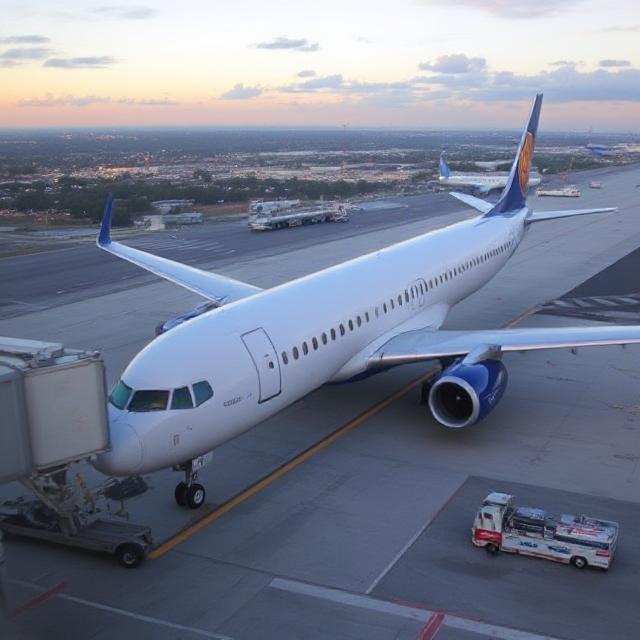Jacksonville International Airport (JAX) has traditionally been a vital hub for both leisure and business travelers along the East Coast. However, in recent months, the airport has experienced a noticeable shift—Jacksonville flight discontinuations are on the rise, with several airlines cutting or reducing routes.
These changes have left travelers and businesses questioning the reasons behind the cuts, their long-term impact, and whether Jacksonville will regain its lost connectivity. This article provides a comprehensive analysis of the airlines reducing service, the underlying factors driving these decisions, and what the future may hold for the region’s air travel network.
Airlines Scaling Back Service at Jacksonville
Over the past year, multiple airlines have withdrawn or reduced service from JAX. These include both legacy carriers and low-cost operators such as:
- JetBlue – suspended flights to New York-LaGuardia and Fort Lauderdale.
- American Airlines – ended nonstop routes to Chicago and Philadelphia.
- Frontier Airlines – pulled service to Las Vegas and Denver.
- Allegiant – reduced seasonal flights to several Midwestern cities.
The loss of these flights impacts a wide range of passengers, from corporate travelers to military families and tourists. In many cases, the decisions were communicated only as “network adjustments” or “seasonal changes,” providing little clarity for those affected.
Key Drivers Behind Jacksonville Flight Discontinuations
Pilot Shortages
A nationwide pilot shortage has forced airlines to consolidate operations. With fewer qualified pilots available, carriers have prioritized major hubs and high-demand routes, leaving secondary markets like Jacksonville more vulnerable to cuts.
Aircraft Availability and Maintenance Delays
Supply chain disruptions have slowed aircraft production and created maintenance backlogs. Airlines with limited aircraft must focus on their most profitable markets, often at the expense of smaller airports such as JAX.
Rising Operational Costs
The combination of higher fuel prices, labor expenses, and airport fees has increased the cost of operating flights. Routes with thinner profit margins—such as many tied to Jacksonville flight discontinuations—are frequently among the first to be reduced or eliminated.
Market Challenges at Jacksonville International Airport
Limited Business Travel Demand
While Jacksonville is an attractive leisure destination, it lacks the steady year-round corporate travel demand of larger cities like Atlanta or Dallas. This imbalance makes it difficult for airlines to sustain certain routes profitably.
Competition from Nearby Airports
Proximity to airports in Orlando (MCO), Daytona Beach (DAB), and Savannah (SAV) presents another challenge. Many travelers are willing to drive a few hours for lower fares or more direct flights, which dilutes demand at Jacksonville.
Consequences of Jacksonville Flight Discontinuations
The ripple effects extend beyond the inconvenience of longer travel times:
- Extended Travel Itineraries – Routes once served nonstop now often require layovers, increasing travel time and connection risks.
- Higher Airfares – With fewer flights and reduced competition, fares on remaining routes have increased.
- Economic Impact – Businesses that depend on air connectivity face reduced accessibility, which may deter corporate relocations, limit convention hosting opportunities, and affect tourism.
Jacksonville International Airport’s Response
Despite the challenges, JAX is taking proactive steps to attract and retain airline service:
- Airline Incentive Programs – Offering financial incentives, marketing partnerships, and risk-sharing agreements to airlines.
- Infrastructure Upgrades – Investing in modernized terminals and runway improvements to enhance efficiency and passenger experience.
- Community Engagement – Partnering with local businesses to demonstrate demand and encourage airlines to reinstate or expand service.
A Broader National Trend
Jacksonville is not alone in facing route reductions. Across the U.S., many mid-sized cities have experienced similar flight losses as airlines restructure networks post-pandemic. Changes in travel behavior, a decline in corporate travel, and a stronger reliance on hub-and-spoke systems are reshaping airline strategies nationwide.
How Travelers Can Adapt
While Jacksonville flight discontinuations create challenges, travelers can take steps to ease the burden:
- Remain flexible with travel dates and times.
- Use fare alerts and book early for better prices.
- Support JAX flights whenever possible to strengthen demand.
- Provide direct feedback to airlines, expressing interest in reinstating routes.
Conclusion: The Future of Jacksonville Flight Discontinuations
The rise of Jacksonville flight discontinuations represents a significant short-term setback for the region. However, these cuts are part of broader industry challenges rather than a reflection of Jacksonville’s long-term potential.
With its growing population, thriving tourism industry, and proactive airport management, Jacksonville remains an attractive market for airlines. While current conditions may limit connectivity, there is a strong likelihood that lost routes will return—or be replaced by new, strategically viable connections—in the coming years.
For now, travelers and businesses must adjust, but the outlook suggests that Jacksonville’s skies will eventually see renewed growth and opportunity.


